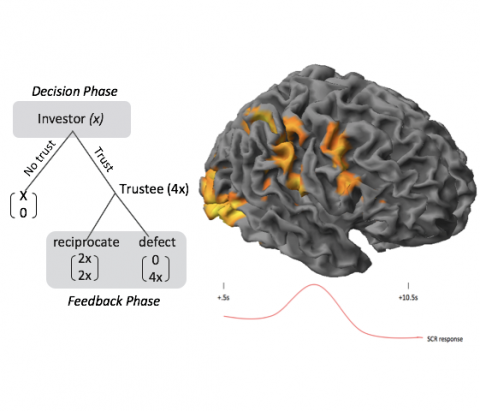Research Projects

Many of our everyday social decisions require constant assessments of other individuals, such as whether they can be trusted. These decisions are inherently risky, as it is often uncertain, especially with strangers, how outcomes will unfold.
Despite this, the mechanisms governing social risky learning remain largely unexplored. A hypersensitivity to risk and uncertainty—a hallmark symptom of anxiety that often results in a pronounced and maladaptive bias toward making risk-avoidant choices—provides an ideal test bed to probe the mechanisms governing social risky learning.
To examine this, a team of scientists led by Professor Oriel FeldmanHall are merging methodologies and insights from associative learning models and neuroeconomics to examine the functional properties of the brain-behavior relationships that mediate social learning under uncertainty, while also identifying how alterations in these learning mechanisms shift socially risky behavior in maladaptive ways.
Their aim is that this work will help to elucidate both optimal behavioral patterns and dysfunction and pathology during social learning—findings that may reveal potential biomarkers to aid in diagnosis and targeted interventions in those suffering from anxiety.